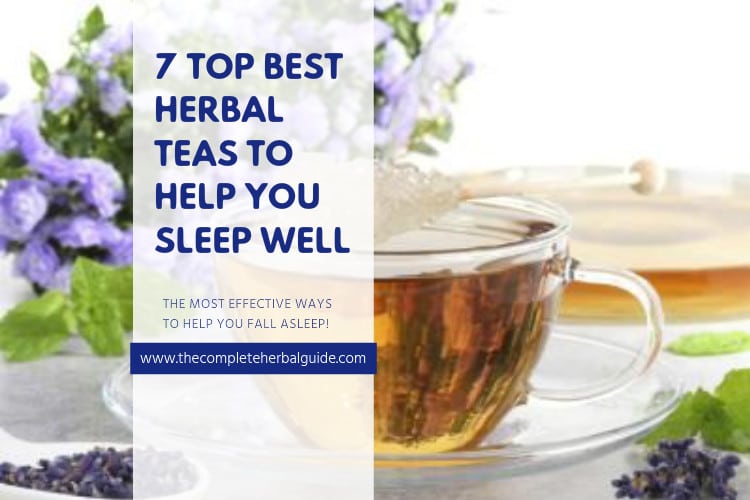


You can take ashwagandha as a tablet or tea. The result was that both groups saw significantly improved sleep, but it benefited insomnia patients slightly more.Ī 2023 research review found similar results from other studies, but noted that more research needs to be done before this herb can be fully approved by the scientific community. Patients in the study were evaluated based on several factors such as overall sleep, amount of time it takes to fall asleep, and questionnaires.
#BEST HERBAL TEA FOR DEEP SLEEP TRIAL#
One randomized control trial from 2021 published in the Journal of Ethnopharmocology monitored its use in 40 patients with previously reported insomnia and another 40 that had otherwise normal sleep patterns. Some of the reported side effects are:Īnother root that has recently gained attention is ashwagandha, native to India and Southeast Asia If you want to try red ginseng, you can take it as a tablet, extract, or tea. A separate human ginseng study concluded that the root reduced overall wake time and increased sleep efficiency.Īs with any herbal medicine it’s important to source quality ingredients, and ginseng is one to look out for as reports suggest that the supplements often contain toxic metals. Because of this, it has different chemical properties and may have more potency.Īnd although ginseng is often associated with energy and vitality, one study has shown that it improves deep sleep in rodent subjects. Sometimes known as Korean ginseng, red ginseng is actually historically linked to China.Ĭompared to fresh and white ginseng, red ginseng is grown for much longer and is processed differently. You can take chamomile as a tablet, extract, or tea. However, many swear by the liquid form’s relaxing impact on sleep. It’s important to note that the delivery method in the above study may have different results than sipping steeped tea. One study even compared the effects of a 400 mg tablet to benzodiazepine, a class of depressant drugs used to treat conditions like insomnia and anxiety disorders. The effects of chamomile on sleep are debated, but some studies have shown that it can decrease the amount of time it takes to fall asleep and also reduce night time awakenings. Its pale yellow flowers can be found on packaging in just about every tea section there is If you’re a herbal tea drinker, you’ve probably given chamomile a shot. You can take valerian root as a tablet, extract, or tea. The herb relaxes the brain and keeps it from aroused states – one possible factor contributing to insomnia. It also seems to be good for insomnia because of anti-anxiety effects. When consuming it, patients often report that it takes less time to fall asleep and that it’s also easier to stay asleep. This effect takes place via GABA-A receptors in the brain, the activation of which helps with sleep. One of the most popular herbs for sleep is valerian root, a purple flower with a thick, green stalk native to Europe and Asia.Īs with many of the remedies on this list, early studies show that valerian root seems to work well as a sedative. Note: Studies on all of these herbs are limited, and the research on their benefits and side effects are still considered inconclusive. From valerian root to passionflower, here are 11 herbs that can improve your sleep. In more recent years, those natural remedies are growing popular again. Some of her suggestions include: chamomile, lavender, or even warm milk or golden milk tea, which she says “can provide a sense of calm and comfort particularly as the aroma may evoke pleasant memories, such as of childhood or connection to one's culture.Archeological evidence suggests that humans have been consuming medicinal herbs for 60,000 years, treating everything from pain to insomnia.

“In general, selecting the appropriate tea to include as part of a bedtime ritual is more about personal preference and taste, and certainly avoiding any tea that contains caffeine, as caffeine is a known sleep-disrupter,” Dr. When choosing an herbal tea that can promote relaxation, it’s important to consider a few things, like flavor, aroma, and caffeine content.įor starters, you’ll want to choose a tea you actually enjoy the taste of-plus, it shouldn’t contain caffeine if you want to (successfully) wind down in the evening. “While these teas are unlikely to ‘put you to sleep,’ they can put you in the right mindset to optimize the likelihood of a good night of sleep,” Dr. But again, though it’s true herbal teas might help you feel calmer and set you up for a successful night's rest, they won’t actually make you fall asleep.


 0 kommentar(er)
0 kommentar(er)
